Electric Car Charge: All Concerns Answered

Will the EV Get Charged Up to 100% Each Time?
Discharging the 0% lithium-ion battery won't only make individuals concerned about their autonomy! Attempting to do this will endanger the current battery's long-term health. As a matter of fact, the data from over 6,000 vehicles demonstrate that the EV batteries are powerful enough to endure thousands of charges & discharge cycles even while performing well, implying that almost all EV owners never have to worry about battery replacement.
There is also no reason, therefore, to take the battery technology for granted. The EV owners may avoid using 0 percent batteries by rejecting the previous "recharging" paradigm of recharging automobiles.

When it's around 20% for the mobile phone, one must plug it in the next time you drive. At the same time, until and unless you require using the whole range of the vehicle, you do not have to charge at the full capacity all of the time. If the charge level happens to be between 20% & 80%, you may drive for more than a kilometre while carefully handling the battery.
The one exception that you need to know is that when you continue using the battery during the winter, it just stays warm. Because battery power just is needed to heat a battery to the ideal operating temperature, the connecting battery in cold conditions will increase battery life. And anxiety can be reduced by losing 30% or even more when it remains connected.

Will The EV Vehicle Need to Get Charged Each Night?
Range anxiety is the concern that electric vehicle drivers have when they believe the car battery will not be able to cover a distance they go. That's the most significant impediment to people transitioning to electric automobiles.
In reality, the typical person drives 59.5 kilometres every day. Most of the recent modern electric cars might go over 200 miles on a single charge, implying that they may easily satisfy the demands of regular driving. An owner stayed at home that night. In truth, those who drive normally don't require charging their batteries every night in a full charge mode.
Furthermore, there are far more charging points to select outside of the home, so you may simply find the charging station when you require powering the automobile. In simple words, you do not have to worry about the car getting parked in the middle of a road when you did not charge the battery in the road's middle.
How Long Will It Take to Charge the Electric Vehicle?
Many prospective EV drivers get concerned that charging the clean BEV or battery electric vehicle on the typical household outlet may take t60 hours. In reality, drivers of electric vehicles have discovered that plugging into a grid saves time when compared to the driving experience at the petrol station.
And most automobiles are stopped for a long enough period of time to allow for sufficient driving distance. An automobile only spends 6 hours per week on average & spends the remaining 162 hours in a parking lot. You may augment the mileage you went that particular day sans affecting the lifestyle when you drive roughly 35 miles a single day & put your EV into the standard power outlet overnight. According to the results of our poll, only roughly 55% of the drivers have the level 2 installation in their house.
Perhaps you travel 240 miles per day on a regular basis. For that instance, you can't wait around 60 hours for the battery to charge fully. Installing the level 2 charger in the house ensures that the car's battery is fully charged overnight. After all, charging at work will just be as easy as charging inside the house, and many environmentally concerned companies offer charging as an employee bonus. There are multiple workstations that provide free second-level charging.

Will The Owner Be Careful of Charging The EV?
Overcharging & overheating are the major causes of battery damage: because lithium-ion batteries happen to be flammable, electric automobiles are safer than vehicles with internal combustion engines. But owing to extended exposure to incorrect voltage regulators, alternators, or inappropriate operation, the battery can be damaged.
The liquid electrolyte of the battery pack might overheat. The electric car built to get charged repeatedly using a rapid charger might harm the battery & charging port, compromising the battery's stability.
Latest News
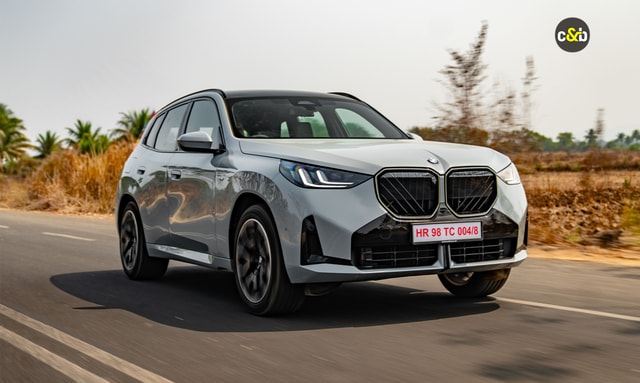 Bilal Firfiray | Feb 16, 2026BMW X3 xDrive30 M Sport Pro Lanched In India At Rs 74.50 LakhThe new range-topping xDrive 30 done up in the M Sport Pro trim offers 255bhp and 400Nm. Can do 0-100kmph in just 6.3 seconds1 min read
Bilal Firfiray | Feb 16, 2026BMW X3 xDrive30 M Sport Pro Lanched In India At Rs 74.50 LakhThe new range-topping xDrive 30 done up in the M Sport Pro trim offers 255bhp and 400Nm. Can do 0-100kmph in just 6.3 seconds1 min read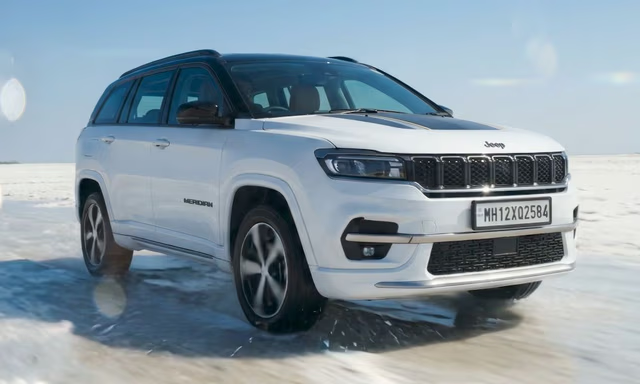 Jaiveer Mehra | Feb 16, 2026Jeep Meridian Track Edition Launched In India; Prices Start At Rs 35.95 LakhSpecial edition of the Meridian is based on the fully-loaded Meridian Overland.1 min read
Jaiveer Mehra | Feb 16, 2026Jeep Meridian Track Edition Launched In India; Prices Start At Rs 35.95 LakhSpecial edition of the Meridian is based on the fully-loaded Meridian Overland.1 min read Girish Karkera | Feb 16, 2026MG's First Plug-In Hybrid For India Coming In 2026, Confirms MD Anurag MehrotraJSW MG is pivoting toward a hybrid and electric future, targeting a 30% market share for New Energy Vehicles (NEVs) by the end of the decade1 min read
Girish Karkera | Feb 16, 2026MG's First Plug-In Hybrid For India Coming In 2026, Confirms MD Anurag MehrotraJSW MG is pivoting toward a hybrid and electric future, targeting a 30% market share for New Energy Vehicles (NEVs) by the end of the decade1 min read car&bike Team | Feb 15, 2026Maruti Suzuki Brezza Facelift Spied With 6-Speed Manual GearboxLatest images of the test car’s interior suggest that it could become the first Maruti to get a 6-speed manual gearbox.1 min read
car&bike Team | Feb 15, 2026Maruti Suzuki Brezza Facelift Spied With 6-Speed Manual GearboxLatest images of the test car’s interior suggest that it could become the first Maruti to get a 6-speed manual gearbox.1 min read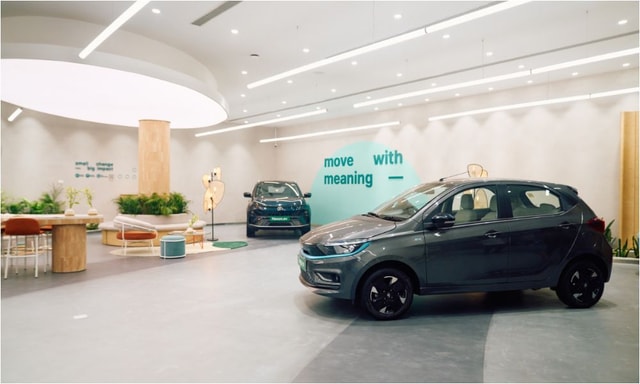 Jaiveer Mehra | Feb 15, 2026SIAM Reports PV Sales Of Almost 4.5 Lakh Units, 2W Sales Of Over 19 Lakh Units In January 2026SIAM reported that sales of passenger vehicles and two-wheelers were the best ever for the month of January.1 min read
Jaiveer Mehra | Feb 15, 2026SIAM Reports PV Sales Of Almost 4.5 Lakh Units, 2W Sales Of Over 19 Lakh Units In January 2026SIAM reported that sales of passenger vehicles and two-wheelers were the best ever for the month of January.1 min read car&bike Team | Feb 14, 2026Kawasaki Ninja, Versys Models Available With Discounts Of Up To Rs 2.50 LakhThe highest discount is being offered on the Ninja ZX-10R, followed by the Ninja 1100 SX and ZX-6R models.2 mins read
car&bike Team | Feb 14, 2026Kawasaki Ninja, Versys Models Available With Discounts Of Up To Rs 2.50 LakhThe highest discount is being offered on the Ninja ZX-10R, followed by the Ninja 1100 SX and ZX-6R models.2 mins read
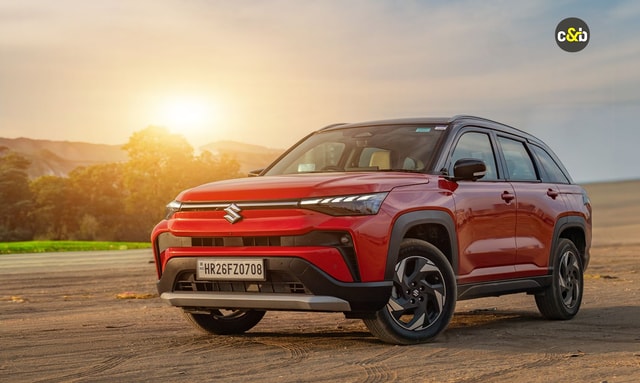 Jafar Rizvi | Feb 15, 2026Maruti Suzuki Victoris: Long-Term Review - Report 1The Victoris is Maruti’s latest offering for the Indian market, and after spending some time with it, here are a few early impressions.1 min read
Jafar Rizvi | Feb 15, 2026Maruti Suzuki Victoris: Long-Term Review - Report 1The Victoris is Maruti’s latest offering for the Indian market, and after spending some time with it, here are a few early impressions.1 min read Bilal Firfiray | Feb 12, 2026BMW X3 30 xDrive M Sport Review: The Driver’s SUV ReturnsRange-toppingX3 30 xDrive M Sport brings back the fun with 255bhp and genuine enthusiast appeal. Does this performance-focused SUV stand out?5 mins read
Bilal Firfiray | Feb 12, 2026BMW X3 30 xDrive M Sport Review: The Driver’s SUV ReturnsRange-toppingX3 30 xDrive M Sport brings back the fun with 255bhp and genuine enthusiast appeal. Does this performance-focused SUV stand out?5 mins read Bilal Firfiray | Feb 11, 2026Mercedes-AMG CLE 53 Coupe Review: The Goldilocks AMG?The Mercedes-AMG CLE 53 Coupe is a concoction of hooliganistic performance and everyday usability. Here’s why this Rs 1.5 crore two-door AMG might be the perfect modern sports coupe for India.6 mins read
Bilal Firfiray | Feb 11, 2026Mercedes-AMG CLE 53 Coupe Review: The Goldilocks AMG?The Mercedes-AMG CLE 53 Coupe is a concoction of hooliganistic performance and everyday usability. Here’s why this Rs 1.5 crore two-door AMG might be the perfect modern sports coupe for India.6 mins read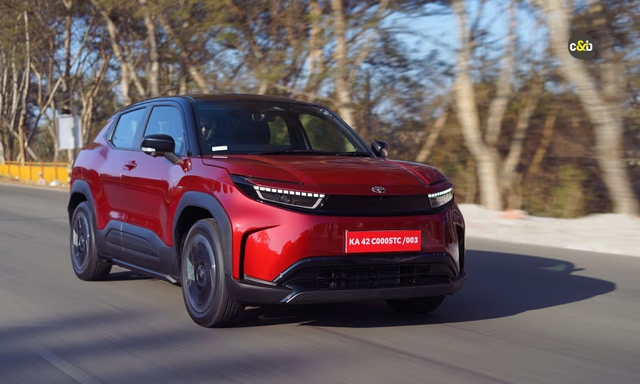 Girish Karkera | Feb 11, 2026Toyota Ebella EV Review: Compact And Fun-To-Drive With The Promise Of Stress-Free AftersalesNo hiding the fact that it is a clone of the Maruti Suzuki eVitara, but the first all-electric Toyota in India is reasonably well-rounded8 mins read
Girish Karkera | Feb 11, 2026Toyota Ebella EV Review: Compact And Fun-To-Drive With The Promise Of Stress-Free AftersalesNo hiding the fact that it is a clone of the Maruti Suzuki eVitara, but the first all-electric Toyota in India is reasonably well-rounded8 mins read Bilal Firfiray | Feb 10, 2026Tata Punch EV Long Term Review: Small EV With A Big-Hearted PersonalityWith the new Punch EV Facelift just around the corner, we decided to take a look at what it excels at and what could be improved.7 mins read
Bilal Firfiray | Feb 10, 2026Tata Punch EV Long Term Review: Small EV With A Big-Hearted PersonalityWith the new Punch EV Facelift just around the corner, we decided to take a look at what it excels at and what could be improved.7 mins read




























































































































